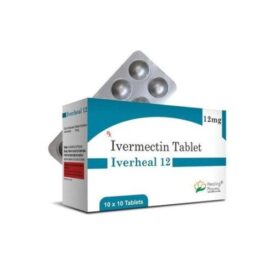Ozempic and Weight Loss: What You Need to Know
In recent years, Ozempic has gained attention not only as a medication for type 2 diabetes but also for its surprising effectiveness in promoting weight loss. If you’re considering Ozempic for weight loss, this guide will walk you through how it works, what results you can expect, and what side effects to watch out for.
What Is Ozempic?
Ozempic is the brand name for semaglutide, a medication originally developed to help manage blood sugar levels in adults with type 2 diabetes. It is a GLP-1 receptor agonist, meaning it mimics a hormone in your body that regulates appetite, insulin, and digestion.
Recently, more people have started using Ozempic off-label for weight loss, as it has been shown to help reduce appetite and promote significant weight loss when combined with diet and exercise.
How Ozempic Helps With Weight Loss
So, how does Ozempic help with weight loss?
Ozempic works in several ways:
-
Appetite suppression: It slows down the emptying of the stomach, helping you feel fuller longer after eating.
-
Reduced food intake: By curbing hunger signals, it naturally helps reduce calorie consumption.
-
Improved insulin sensitivity: It helps your body better manage blood sugar, reducing cravings associated with glucose spikes and drops.
Clinical trials have shown that many users can lose between 10% to 15% of their body weight with consistent use, especially when combined with healthy lifestyle changes.
What to Expect: Ozempic Results
Most users begin to see results within the first few weeks of starting Ozempic for weight loss, although the most dramatic changes typically happen over several months.
Here’s what you might expect:
-
Month 1-2: Gradual appetite reduction and modest weight loss
-
Month 3-6: More noticeable weight loss, often 5-10% of starting weight
-
6+ Months: Sustained weight loss, potential plateau depending on lifestyle factors
Consistency is key. Your doctor will likely start you on a low dose and gradually increase it to minimize side effects and allow your body to adjust.
Potential Ozempic Side Effects
Like any medication, Ozempic does come with potential side effects. The most common Ozempic side effects include:
-
Nausea
-
Diarrhea or constipation
-
Headache
-
Fatigue
-
Bloating
These usually subside as your body adjusts. However, more serious (though rare) risks include pancreatitis, kidney issues, and thyroid tumors. Always consult with a healthcare professional before starting Ozempic.
Is Ozempic Right for You?
If you’re struggling to lose weight through traditional methods, Ozempic might offer a powerful tool to support your journey. However, it’s not a miracle drug. Ozempic works best when combined with a balanced diet, regular exercise, and ongoing medical supervision.
Before considering Ozempic for weight loss, talk to your doctor about:
-
Your current weight and health goals
-
Any existing conditions like diabetes or heart issues
-
Medications you’re already taking
Final Thoughts
Ozempic is changing the landscape of weight loss treatments. With the ability to reduce appetite and support long-term weight management, it’s no surprise that it’s become a popular option for those looking to lose weight effectively and safely.
Still, it’s important to approach this treatment with caution. Understanding how Ozempic helps with weight loss, being aware of potential Ozempic side effects, and setting realistic expectations for your Ozempic results will help you make the most informed decision possible.
If you’re considering this treatment, consult a healthcare provider to determine if Ozempic is right for you. As always, sustainable weight loss is about more than just medication—it’s a long-term commitment to your health.



